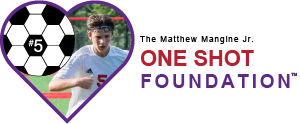Sudden cardiac arrest (SCA) is a life-threatening condition where the heart unexpectedly stops beating. Unlike a heart attack, which is caused by a blockage in blood flow, SCA occurs due to an electrical disturbance that interrupts the heart’s rhythm. This leads to an immediate loss of blood flow to vital organs. Without prompt intervention, SCA can be fatal within minutes. According to the American Heart Association, over 350,000 cases of SCA occur annually in the United States outside of hospitals, highlighting the importance of recognizing warning signs early.
Symptoms and Warning Signs
SCA often strikes without obvious warning, but in many cases, there are subtle signs that may precede it. Recognizing these early indicators can make a significant difference in responding quickly:
- Unexplained Fainting or Dizziness: A sudden loss of consciousness, especially during or after physical activity, could signal an abnormal heart rhythm.
- Chest Pain or Discomfort: While often associated with a heart attack, chest pain can also be a precursor to SCA, particularly if it occurs during exercise.
- Shortness of Breath: Difficulty breathing that is disproportionate to the activity level may indicate an underlying heart issue.
- Heart Palpitations: A racing or irregular heartbeat that feels unusual should not be ignored.
- Extreme Fatigue: Feeling excessively tired or weak without a clear cause can sometimes be linked to heart problems.
What Coaches, Parents, and Athletes Should Know
For student-athletes and those involved in sports, the risk of SCA can be heightened due to the physical demands of exercise. According to the National Library of Medicine, young athletes are more likely to experience SCA during intense physical activity. Knowing the signs and acting quickly could save a life.
- Take Reports Seriously: If an athlete mentions unusual symptoms, it’s essential to address them immediately, even if they seem minor.
- Be Aware of Family History: A family history of sudden death or heart conditions can increase the risk of SCA.
- Know CPR and AED Use: Familiarity with CPR and automated external defibrillators is vital. The American Red Cross reports that using an AED within the first few minutes of cardiac arrest can significantly improve survival rates.
Early Action Saves Lives
Awareness and preparedness are key to preventing tragedy from SCA. Paying attention to symptoms, responding promptly, and prioritizing regular heart health evaluations for young athletes can make all the difference. Coaches, parents, and sports staff play a pivotal role in recognizing early warning signs and acting quickly to protect the lives of those under their care.

